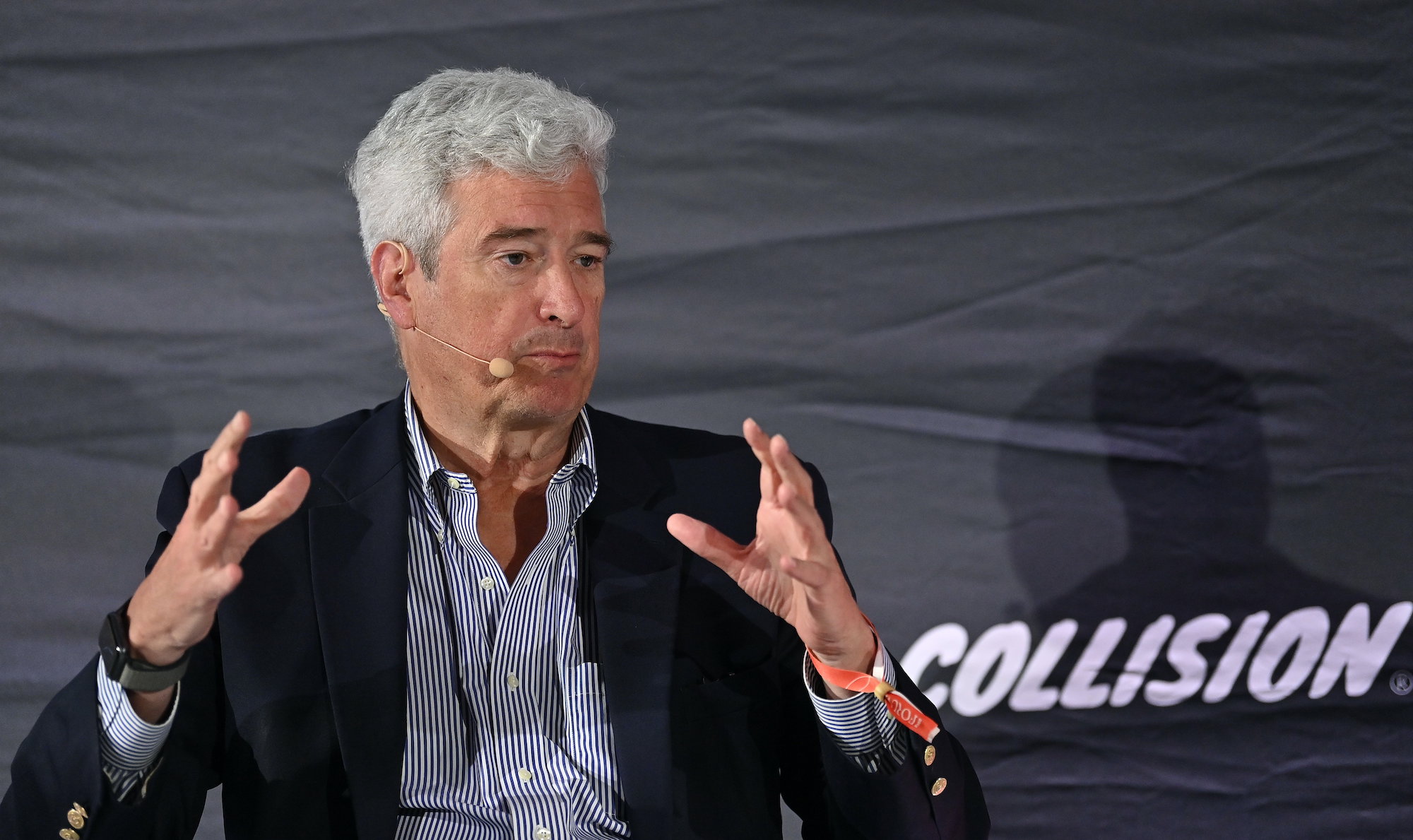With last week's sale of Kotaku, the project that was G/O Media is effectively dead. Its media portfolio is now something of a media one-pager: The only website it still owns is The Root, another publication that deserved better. The Nosferatus in Oxford blue shirts at Great Hill Partners, which owns G/O Media, have polished off the blood and will turn to some other victim.
In a lengthy statement released on Wednesday—titled "G/O Media Epilogue"— CEO Jim Spanfeller looked back on his work and concluded that he's actually done a decent job, all things considered. "While the business in general was doing as well or better than the vast majority of its peers it was clear that the hockey stick type growth that was initially planned before Covid and several media recessions and the ongoing issues of the walled gardens (Google, Meta, etc.) was not coming in the near future," Spanfeller wrote.
Maybe Great Hill could have bought some distressed punctuation for him. For the rest of this article, apply [sic] to any excerpts of Spanfeller's poorly edited thoughts. The CEO of a hollowed-out media company had no editors who could take a second look. Syntactically, it's a mess—he mangles adverbs like he did media properties, using phrases like "overtly basic" and "widely wrong and disingenuous." He writes of artificial intelligence, "It is here to a degree but there are so many more shoes to drop." Is he speaking to an audience of centipedes?
But to criticize Spanfeller's writing is to give it too much credit. His unwashed hands created a document of failure spun with excuses. He could have made G/O Media even greater, if not for factors like "the current climate" (everyone's dealing with that), "walled gardens" (he mentions this concept three times), or a recalcitrant union that blamed him too much (likely story). "It feels a bit like some of these extremely combative positions are a bit on the wane now," he wrote. "But perhaps that is just our specific case as our Union base has gotten dramatically smaller." That tends to happen when you demoralize your editorial department, shut down their sites, and sell them off.
"This is in no way a suggestion that Great Hill was in some way acting like a rapacious private equity firm," Spanfeller wrote in the following paragraph. Sure thing. When you drive a suite of popular media companies into the ground and yard-sale them one by one, that's actually business success. He completed his mission of appeasing shareholders, to the detriment of everyone else.
There's a lot more ahistorical relitigation in here that you'd expect from a guy in this position, but let's focus on the part where his song is actually about us. After complaining about unions and explaining what he thinks the editorial process should be like, he addresses his biggest error:
A poster child here might be Deadspin and the early issues we had with the incumbent staff. Who owned the site and who had to make the site work was theoretically not a core factor in what the site reported on nor how it did that reporting. We asked for the slightest of changes, to cover just sports, sports related issues as well as sports adjacent stories. That was perceived as beyond the pale by the legacy team and as such they left en masse. An outcome that the management team certainly did not want. But that said, with a new team which was also feisty to say the least (just ask our IP lawyers) but who stayed within the sports realm, we returned the site to previous traffic levels and made a profit for the first time in many, many years. And, in the end, we sold the site for more than we bought it for.
We've told our version of what happened, many times. If you're reading this, you most likely know it already. I think plenty of metrics would indicate that lots of people stopped reading Deadspin when we left in 2019; our own eyes would indicate that the successive version of Deadspin was bad at reporting and good at getting sued. Spanfeller's only defense is that he turned a profit on the name which we, along with many people before our time there, helped to establish. His attempt at a parting shot doesn't provide any actual numbers to show his lucrative deal.
As Defector approaches its five-year anniversary in September, here's a message for Jim Spanfeller: I'm glad that this still eats at you. You overplayed your hand, and everyone watched you destroy your already flimsy reputation. The unnecessary cost was that you hounded talented people out of their jobs, but many of them have gone on to thrive elsewhere. Meanwhile, what you did to a bunch of beloved publications will be the defining moment of your career, maybe even the defining moment of your parasitic life. I'd say that it'll be the first line of your obituary, but let's be honest: No one's writing one of those for you.
Disclosure: The majority of the Defector staff worked at a previous version of Deadspin.






